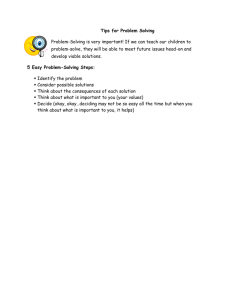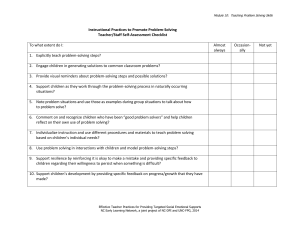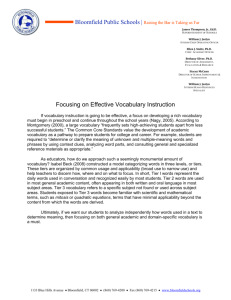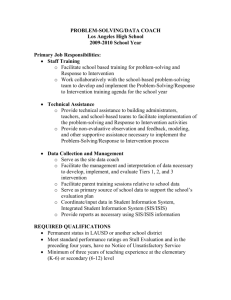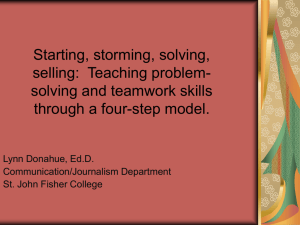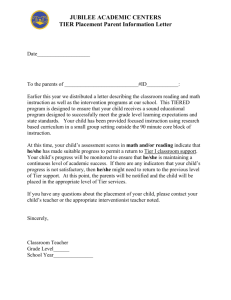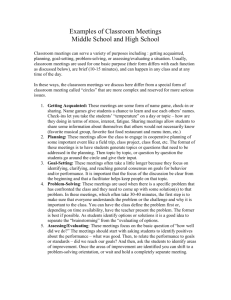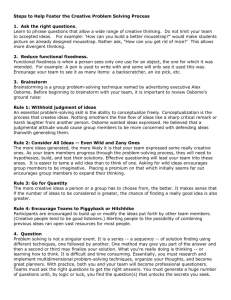NC Tiers of Problem Solving - Winston
advertisement
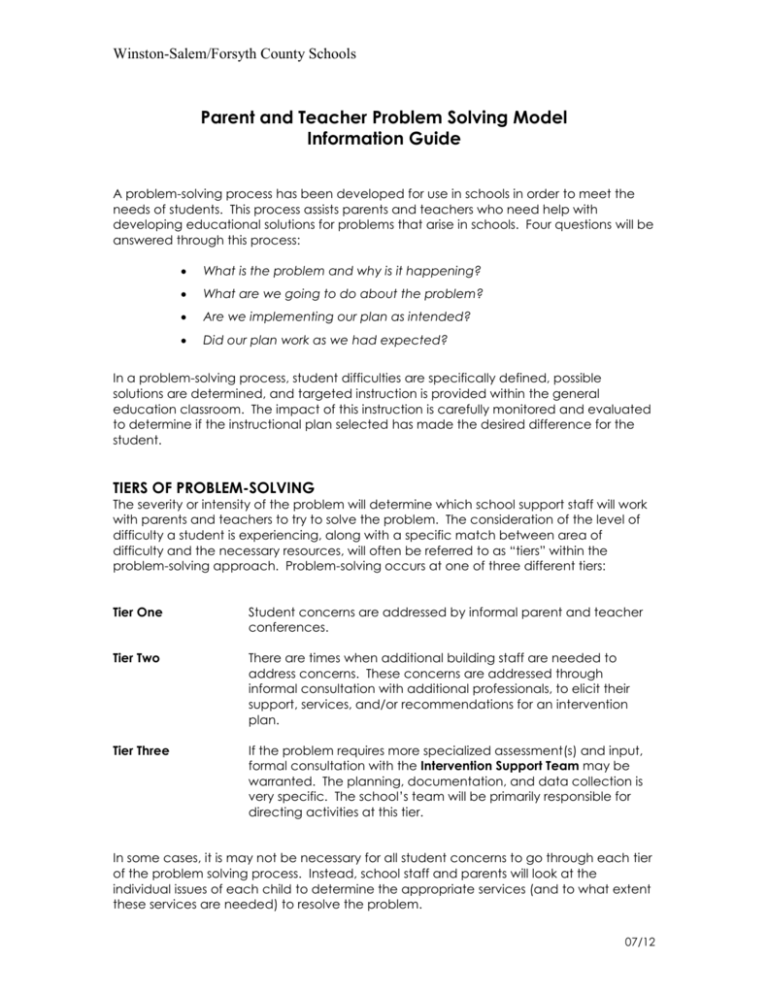
Winston-Salem/Forsyth County Schools Parent and Teacher Problem Solving Model Information Guide A problem-solving process has been developed for use in schools in order to meet the needs of students. This process assists parents and teachers who need help with developing educational solutions for problems that arise in schools. Four questions will be answered through this process: What is the problem and why is it happening? What are we going to do about the problem? Are we implementing our plan as intended? Did our plan work as we had expected? In a problem-solving process, student difficulties are specifically defined, possible solutions are determined, and targeted instruction is provided within the general education classroom. The impact of this instruction is carefully monitored and evaluated to determine if the instructional plan selected has made the desired difference for the student. TIERS OF PROBLEM-SOLVING The severity or intensity of the problem will determine which school support staff will work with parents and teachers to try to solve the problem. The consideration of the level of difficulty a student is experiencing, along with a specific match between area of difficulty and the necessary resources, will often be referred to as “tiers” within the problem-solving approach. Problem-solving occurs at one of three different tiers: Tier One Student concerns are addressed by informal parent and teacher conferences. Tier Two There are times when additional building staff are needed to address concerns. These concerns are addressed through informal consultation with additional professionals, to elicit their support, services, and/or recommendations for an intervention plan. Tier Three If the problem requires more specialized assessment(s) and input, formal consultation with the Intervention Support Team may be warranted. The planning, documentation, and data collection is very specific. The school’s team will be primarily responsible for directing activities at this tier. In some cases, it is may not be necessary for all student concerns to go through each tier of the problem solving process. Instead, school staff and parents will look at the individual issues of each child to determine the appropriate services (and to what extent these services are needed) to resolve the problem. 07/12 Winston-Salem/Forsyth County Schools GENERAL EDUCATION INTERVENTION PLANS A general education intervention plan is a planned set of procedures and strategies provided through general education designed to improve student performance. An intervention plan describes the part of the problem-solving process where individuals have looked at a specific concern and, based on informed judgment, put a plan of action in place. The intent of the intervention plan is to reduce the student’s difficulty in the general education setting and learn more about what would be needed to successfully address the concerns. Intervention plans can be provided at different levels of intensity and can involve more or fewer professional staff depending on the degree of the problem and the number of resources needed. ONGOING PROGRESS MONITORING Perhaps the most critical component in the process is “monitoring” or keeping track of the difference the instructional plan is making in the student’s performance. This regular, ongoing collection of information about the effect of the instruction is important to the team’s decision making as they follow-up on the plan. If information is not collected, it will be difficult, if not impossible, to determine the intervention plan’s effect on student performance. EARLY INTERVENTION WITHOUT LABELING The problem-solving process allows school staff and parents to work together to solve student problems without labeling students as being disabled. Instruction is provided in the general education classroom. In that way, students continue to be exposed to the day-to-day lessons in their general education classes. Because students do not have to be labeled in order to receive this instruction, school staff can put their time and energy into analyzing specific student difficulties. Additionally, staff can focus on finding reasonable solutions to reduce those concerns and help carry out and evaluate the success of intervention plans. PARENT REQUESTS FOR EVALUATION The Individuals with Disabilities Act (IDEA) of 2004 clearly states that a parent of a child having problems in school can request an evaluation at any time to determine if their child has a disability and needs special education services. When parents request an evaluation of their child, a meeting will be held with the parent and selected school staff to discuss this request and determine what is needed for the child. It may not be necessary for all student concerns to go through each tier of the problem-solving process. Instead, school staff will look at the individual issues of each child and provide services to the extent needed to resolve the problem. There will be many situations where parents will only be looking for help, information, or support from the school. They are not necessarily asking for an evaluation to determine eligibility for special education services. However, if it is clear that the parent is requesting an evaluation, the school team shall provide direction in completing a written referral. Adapted from NCDPI document, Working Together for Children: A Guide for Parents and Teachers 07/12

